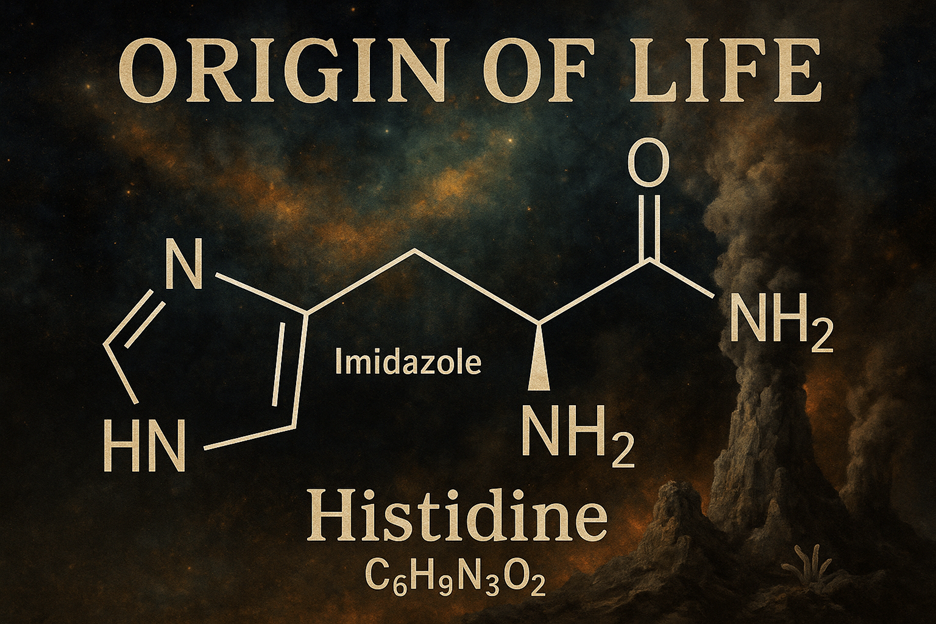- PI: Amirali Aghazadeh, Assistant Professor, School of Electrical and Computer Engineering, Georgia Tech
- PI: Amanda Stockton, School of Chemistry & Biochemistry, Georgia Tech
 Why It's Important: How did life begin on Earth? One of the biggest questions in science is figuring out which essential biological molecules could have formed naturally before life even existed, in what scientists call ‘prebiotic’ conditions. Histidine is particularly puzzling. This amino acid is crucial for biological catalysis and enzyme function today, but previous research suggests it probably couldn't have formed through known prebiotic pathways. The evidence? It's missing from meteorites and doesn't show up in classical synthesis experiments. This matters enormously for origins-of-life research and astrobiology. If histidine really couldn't emerge prebiotically, that's a serious challenge to our understanding of how early catalytic systems evolved. But if we can find plausible prebiotic pathways for histidine synthesis, it could completely change how we search for biosignatures on other planets and guide our current planetary missions.
Why It's Important: How did life begin on Earth? One of the biggest questions in science is figuring out which essential biological molecules could have formed naturally before life even existed, in what scientists call ‘prebiotic’ conditions. Histidine is particularly puzzling. This amino acid is crucial for biological catalysis and enzyme function today, but previous research suggests it probably couldn't have formed through known prebiotic pathways. The evidence? It's missing from meteorites and doesn't show up in classical synthesis experiments. This matters enormously for origins-of-life research and astrobiology. If histidine really couldn't emerge prebiotically, that's a serious challenge to our understanding of how early catalytic systems evolved. But if we can find plausible prebiotic pathways for histidine synthesis, it could completely change how we search for biosignatures on other planets and guide our current planetary missions.
Our Approach: We will develop a multi-agent AI system that functions like a team of specialized AI scientists, each expert in analyzing different types of scientific data. Unlike traditional AI approaches that require standardized datasets, our agentic system can adapt to the fragmented, multimodal nature of origins-of-life data.
